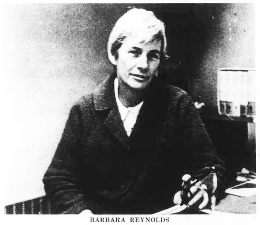The Swarthmore Phoenix published an article about war tax resisting Swarthmore professors on :
Professors Withhold Phone Tax as War Protest
by Scott Walsh
“To fight a war you must have men and money. So you draft men and money. If you aren’t being drafted bodily, you are being drafted monetarily,” reasons Alburt M. Rosenberg, Associate Professor of Physics, in justifying his refusal to pay the ten percent federal phone tax.
Mr. Rosenberg, strongly opposed to the war in Vietnam, is one of several people at Swarthmore who have taken this and other steps to voice their disapproval of the war. The others involved include Thompson Bradley, Assistant Professor of Russian; James T. Wood, Assistant Professor of Mathematics; Barbara Reynolds, Assistant Librarian of the Peace Collection; Carl Barus, Associate Professor of Engineering; and Richard Terdiman, Assistant Professor of French.
The phone tax is viewed by many peace groups as a particularly good one for tax refusal for it is demonstrably a war tax. Instituted during World War Ⅱ to meet the tremendous expenses of the war, the tax was never repealed. However, opposition to it increased during the past several years and the pronouncement was made during the Johnson Administration that the tax would gradually be scaled down and then eliminated completely by . Unexpected increases in the cost of the war in Vietnam caused this policy to be reversed, and as of now the phone tax will continue at ten per cent indefinitely.
FBI Agents
Of the six involved, Mr. Bradley was the first to refuse to pay the tax, stopping payment in . Since then he has been visited frequently by FBI agents. Far from dreading these visits, Mr. Bradley welcomes them, for it gives him the opportunity to spread the idea of resistance to the police. In addition, he wants to get to know policemen so he will be able to understand them. On the whole, he says, “They’re very decent people.”
Tax refusal is a serious matter to Mr. Bradley, however. In pointing out that between 50 and 70 per cent of our national budget goes to war-related operations, he says, “I think there’s too much money that goes for all the war things over which I have no control.” He emphasizes that he is not against the idea of taxation, but opposes the misuse of funds so obtained, pointing out the many social problems facing this nation today and the vast sums of money needed to remedy them.
Mr. Rosenberg first stopped payments in and recently received his first notice from the Internal Revenue Service informing him of his delinquency. When asked why he chose the phone tax to refuse paying, Mr. Rosenberg replied that he got the idea from a notice he received in College Mail urging all to refuse the tax. In addition, he said, “You must start somewhere. If you are going to demonstrate, why do you go to Washington? Why not a SAC base?”
In fact, both Mr. Rosenberg and Mr. Bradley would rather not pay their withholding tax; but since the College withdraws it from their paychecks before they receive them, there is currently little they can do. Action is being taken, however.
Withholding Tax
Mr. Rosenberg wrote a letter to the Board of Managers in , asking them not to withhold 51.6 percent (a figure established by peace groups as the average percentage of taxes devoted to war and war-related programs since the founding of this country) of his taxes. The Board refused on the grounds that such an action would be illegal and would place the Board and the College in jeopardy.
Both Mr. Rosenberg and Mr. Bradley are at this time contemplating other action which is strictly legal yet will guarantee that the government receives less money. The plan is to have a certain percentage of their salaries, perhaps five percent, placed in a special fund, a “Conscience for Peace” fund, which they cannot handle. This would decrease by ten percent the amount of tax they would have to pay. While it is true that if the money were ever used the tax would have to be paid, hopefully the war in Vietnam would be over by that time and the money would be used for constructive purposes.
Mrs. Reynolds and Mr. Wood also have stopped their phone tax payments fairly recently, and neither has been visited by federal agents yet.
Mrs. Reynolds, who has returned to this country only recently from overseas, has sold all her stocks to finance the peace movement. She suggests that just as there are draft counseling centers now, tax counseling centers for prospective tax refusers should also be set up.
Some have criticized tax refusal on the grounds that in the long run the government gets its money anyway, plus fines and interest, by appropriating it from the refuser’s bank account or salary. Mr. Wood believes this analysis is faulty for it fails to consider the time and expense involved for the government in collecting it, as well as the value of the protest as a symbolic action.

